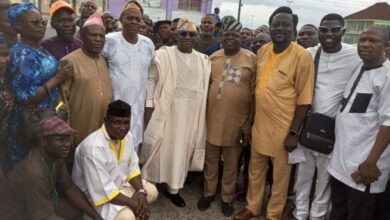Nigeria at 65: Brilliant people, broken nation

Nigeria is a nation richly endowed with brilliant men and women in science, commerce, and technology.
In the United States, Nigerians hold the highest number of PhDs among migrant communities. In business, our citizens can be found making waves across the globe. Yet, despite these achievements, the world often sees Nigerians as a threat, branding us with negative stereotypes.
At home, the tragedy is even worse, we turn against ourselves, consumed by the fires of religion and tribalism.
In advanced democracies, opposition groups act as checks on the ruling party not as enemies.
In the United Kingdom, for example, where the parliamentary system operates, the opposition is called the shadow government. Its duty is to provide constructive criticism, expose shady deals, and hold the government accountable.
The reverse is the case in Nigeria. Here, opposition plays a destructive, rivalry role: “pull them down to get there.” In Nigeria, opposition blindly criticises every government action. It is only here that even projects genuinely beneficial to the people are condemned by the so-called opposition to the point that one wonders: what alternative do they have to offer?
Take, for instance, a former governor from the North Central who once admitted he had no choice but to pay bandits to free captives. Now that he is out of office, he says paying bandits is wrong.
Should families then allow their loved ones to die in captivity? Another former governor, who served eight years as minister under the immediate past administration, failed to secure an appointment in the present government. He quickly forgot it was the same political party that gave him the ministerial opportunity and now sees nothing good in the system. He even claimed he was “hungry.”
Is Nigeria actually working?
I often ask myself this question.
A country where political elites see power only as a means to amass wealth not to serve the people.
A country where, if my tribal kinsman is not president or governor, I see nothing good in the government.
A country where religion takes precedence over merit in political appointments.
In one of my earlier articles, I wrote that the British colonial masters lumped us together for their economic gains and administrative convenience. We were never one people but many nations forced into a single contraption called Nigeria.
Despite abundant natural resources scattered all over the land, Nigeria is not working.
Oil in the South is tightly controlled by federal law as the nation’s main source of revenue, yet solid minerals in the North are neglected. They are left in the hands of criminal cartels who kill villagers, seize their lands, and force entire communities into exile.
This leads to another painful question: when will Nigerians be free from bandits and unscrupulous elements terrorising the nation?
In parts of the North, up to Kwara State, citizens can no longer live in their ancestral lands. In Kwara, some towns have recently been abandoned. In Benue and Niger, entire communities now lie empty. Again, I ask: what is the way forward?
A Puppeteered Legislature
Our lawmakers are mere puppets of the executive. They discuss trivial issues and squabble like secondary school students. The most I have seen them do is move motions to establish universities in their villages.
I have waited to see the National Assembly debate the future of Nigeria, whether we should remain together as one nation or form a stronger union devoid of suspicion and ethnic bias.
I have waited to see them deliberate on ethnic agitations.
I have waited to see them push for laws that erase tribal boundaries so that we see ourselves first as Nigerians.
I have waited to see them criminalise corruption and prescribe the death penalty for offenders.
Instead, what do we see? Motions on boyfriends and girlfriends. Senate seats treated as full-time jobs, rather than part-time service to the nation.
Judiciary in Chains
Our judiciary, ideally, should be independent, free from executive and legislative interference. Instead, it is chained.
What is the way forward?
With another general election approaching, the same problems of religion, ethnicity, and separatist agitation, Biafra, Oduduwa, and others, loom over us.
As of today, Nigeria has no responsible opposition. What we have are recycled politicians, men and women who have held one office or another since 1999, yet now cry out simply because they are out of government for two years. They are part of our systemic failure.
Nigeria desperately needs fresh blood in politics. The youths must rise to take up the challenge.
Corruption as a way of life
Corruption remains the cancer eating us up. Civil servants, the custodians of bureaucracy, are the bedrock of corrupt practices. They teach political appointees how to steal and cover up their atrocities.
In the olden days, when someone came home with new clothes, family and neighbours would ask how they got them. Today, a Level 7 officer in a ministry can drive home in an SUV and no one cares. Instead, everyone congratulates him and plans a party.
We often accuse politicians of stealing, yet we are the ones taking money from them. Our youths, boys and girls, are now neck-deep in internet fraud and rituals for quick wealth and parents no longer complain.
Those who are supposed to check corruption are themselves corrupt.
The falcon can no longer hear the falconer.
A Child of 65 Still Crawling
At 65 years of independence, Nigeria still crawls like an abandoned child. Nigeria is not working.
May the God of our ancestors grant us true independence.
– Lai Gidado publisher Ebony Herald International and Abuja Herald, 1st October 2025



